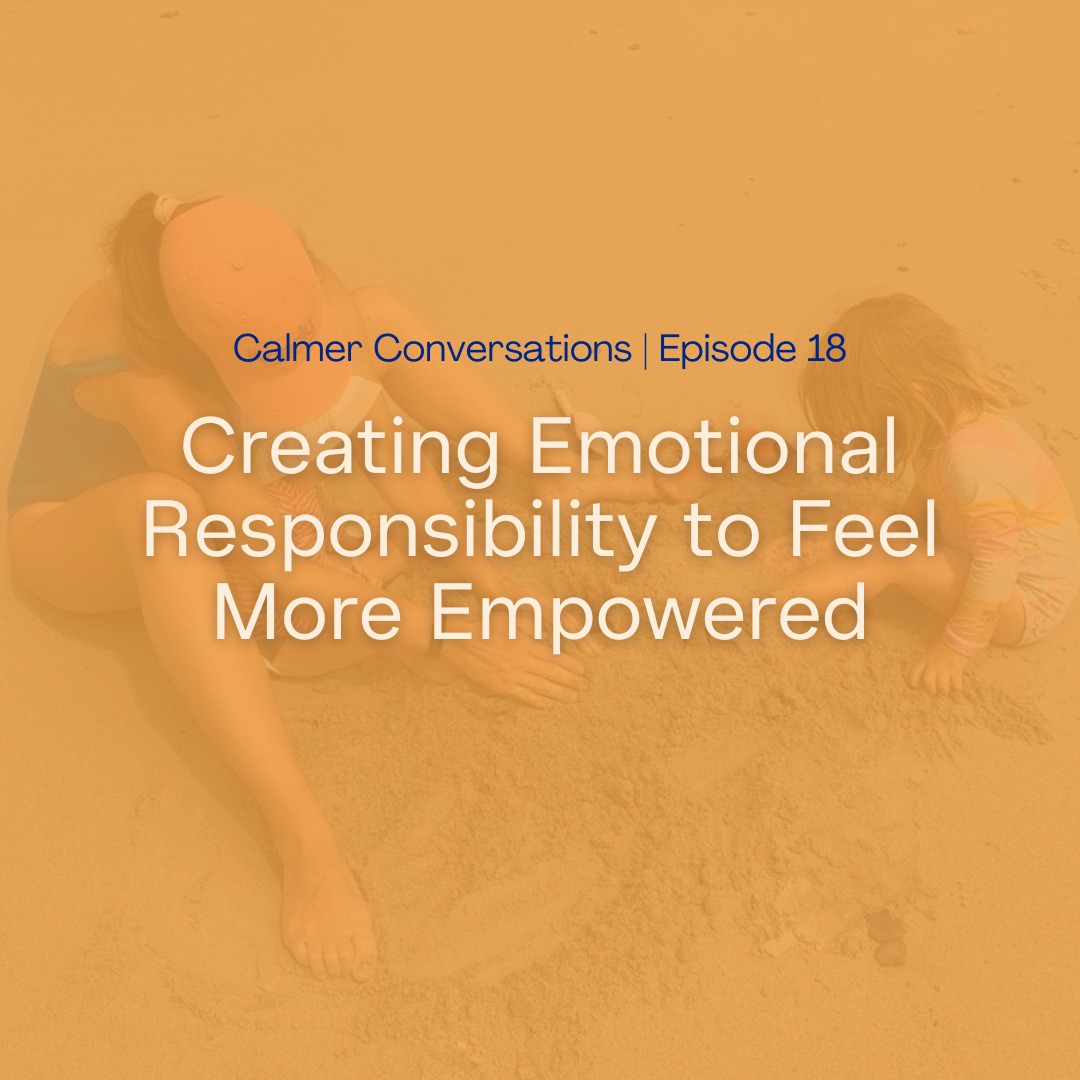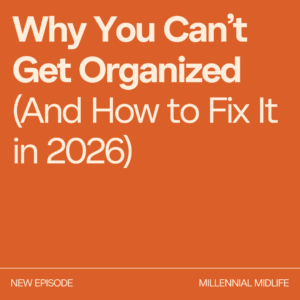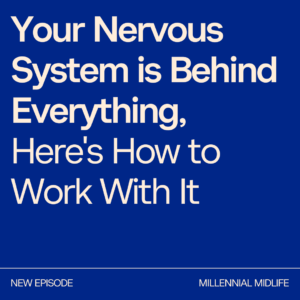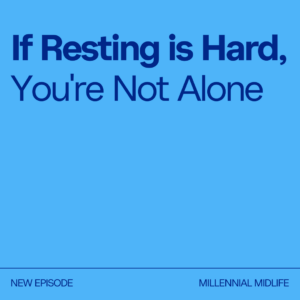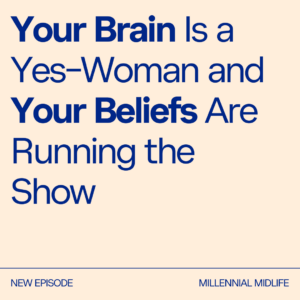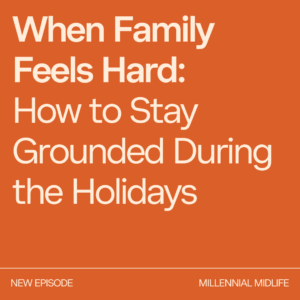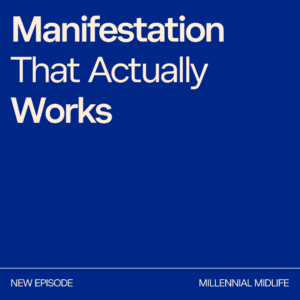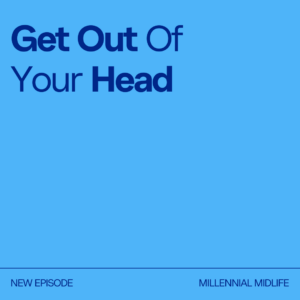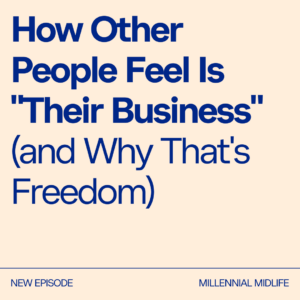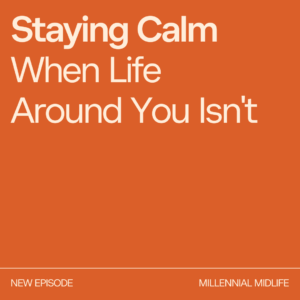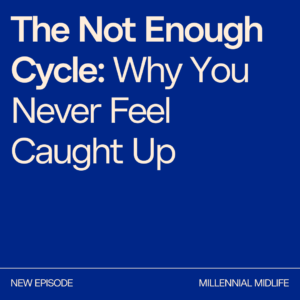Cecelia Baum Mandryk (00:03.886)
Hey and welcome to Calmer Conversations, I’m Cecilia. I actually don’t know what episode this is and I’m laughing because I meant to look before I started, but here we are and I promise that it’ll still be good even if I don’t know what number we’re on. Okay, so I, we’ll see actually how short this is, but I wanna start to intersperse some shorter concepts into the episodes that we do. And this is something a lot of times when I’m out walking or when I’m…
doing yoga or sometimes meditating, have kind of some clarity around something. And I can’t remember when this one actually came to me. I think it was the middle of the night. I sleep with, I co-sleep. So oftentimes I’m up in the middle of the night with kids for various reasons, for various periods of time. So one of the things that comes up a lot in my work with people,
is emotional responsibility. So taking responsibility for how you feel. And this comes up over and over again in individual coaching and group coaching and some of the courses that I teach and it’s how to start to take responsibility for how you feel. And I think
This might just be helpful as kind of a standalone short thing for you to maybe think about. So if you’re driving or walking or however you like to listen to podcasts, if you’re watching me, hello. Is starting to to kind of consider this isn’t something we learn. So like most of the things that I teach, you may have learned it somewhere else, but it’s not something that’s generally conveyed as we’re growing up, at least not for the people who come to me, my clients or other people that I generally see.
And I certainly was never taught this before I started diving into this work, but it’s been extremely beneficial in my life. And for most of the people I work with, it’s extremely beneficial. So what do I mean when I say taking emotional responsibility? So for a lot of us, we learned when we were younger that we were somehow responsible for somebody else’s emotions and someone else is responsible for our emotions.
Cecelia Baum Mandryk (02:14.412)
So this comes up generally when it’s something like, Timmy hurt your feelings or you made me feel sad, things like that, right? So if somebody says, you made mommy feel sad, a young child might start to internalize for a very good reason that they are responsible for how their mom feels, right? And so this is something that I don’t think people say to kids.
intentionally to kind of create this weird dichotomy, but it’s this very interesting thing and dichotomy I don’t even think is the right word to use there, but that’s beyond the point, is that you start, a young child learns that somehow they’re responsible for somebody else’s feelings, right? So they learn that what they do, their actions cause feelings in other people. And then also by deductive reasoning that other people cause the feelings we feel.
and also the circumstances around us cause how we feel. So I can feel happy if something quote unquote good is happening or I feel sad because something outside of me is happening. Well, we can have this conversation around that and in some ways it seems to make sense. Ultimately, if you think about it, it can feel really disempowering because when you’re looking outside of yourself to situations, to…
to other people for how you feel on a day-to-day basis, then you need everything to conform for you to feel okay. And you need everything to really conform and everyone to really conform if you’re gonna feel something like ease or happiness or something like that. And that is a tough place to be in. Ultimately, that means that most of us are either trying to people please, we’re trying to control.
We get really frustrated with what’s happening around us because we can’t control what’s happening around us, right? I can’t control what’s happening around me in my world. You can’t control what’s happening around you in your world. And yes, there is this whole like we create a reality, but you’re not actually controlling other people. And so you have other people in your life and they will continue to behave like other people. It is very hard if you’ve tried and I’ve tried to get other people to behave exactly how you want them to. And even if you’re somewhat successful, oftentimes,
Cecelia Baum Mandryk (04:35.392)
your own standards change day to day. So what you think will make you happy on one day, whether that’s set of outside circumstances or how a person behaves or the things that you have, that generally isn’t the same thing you think on the next day or a week from now or a couple months from now. And you might look in your closet and see all the things that you bought that you thought were going to make you happy. We’re going to solve all your problems that didn’t actually solve all your problems, right?
And if you’re in this place where you’re putting the responsibility of how you feel on outside things and people, just know that you’re not alone. Like this is, as I said when we started, this is really common. And it’s again almost taught to us, it’s sold to us that this is how things work. That we feel a certain way because things outside of us are a certain way or people act in a certain way.
What the switch is, taking emotional responsibility, is saying outside people, people, how they behave, what they do, what they say, outside circumstances in the world are neutral. They’re actually just things that are happening. And when I can take them as neutral, I can start to see how my own thoughts and, because this is not always included, but my own nervous system patterning is influencing how I feel.
And when I notice that, when I notice how I am actually responsible in some part for how I feel, and if you’re an adult, you start to become responsibility for your nervous system state and for what you think, right? So that’s part of this stick. Then, sorry, I just bumped my table.
then you can start to intentionally shift and change how you think and how you feel. You can intentionally start to work with your nervous system, with the thoughts that are going through your brain, so that you can feel a different way. So somebody who is not taking responsibility for their own emotional state says, I need you to behave in a certain way so I can feel okay or good or accomplished or safe.
Cecelia Baum Mandryk (06:57.878)
or happy in the world, or you can insert really any other emotion there, right? So that person, that’s what we’re saying. And you might not actually be saying this, right? But this is what’s going, the kind of mode of operating in the world. So it says, I can feel a certain way if things outside of me go in a certain way, or if people behave in a certain way. That’s when I can start to feel okay.
The switch is, is that I allow other people, I give them permission to feel and do and be and act as they will anyway because they’re humans. I give the world permission to be the world. And I will work to create the feeling state that I want to create inside. I will work to create my own safety by using nervous system tools and thought work.
I will work to create my happiness and gratitude by where I put my intention, by what I reinforce within my brain. I will start to release old patterns of thinking and being so that I can feel how I want to feel in the world. And while this can feel like absolving people of sins or can feel like you’re not holding them responsible, the thing is, is they’re gonna do what they’re gonna do anyway. The world’s gonna do what it does anyway.
But instead of walking around feeling like a victim or feeling really disempowered and feeling like you actually don’t have a say in how you feel, when you make the switch, all of a sudden you get to start to see how you are creating how you’re feeling day to day. You are actually, you’re the one who has more control and say in how you feel than anybody else. And again, this comes up so much in coaching.
Earlier today somebody came in and they said like I’m mad at my sister. You know, she makes me the bad guy when we When we talk and we have to pause and say okay What your sister said was if we took it as neutral then we can ask how were you making you the bad guy? What was the thought pattern in your head that did that and if you can change that how might you feel different when you have a conversation with your sister? and so again, this is just switching things on its head and Well, it can feel
Cecelia Baum Mandryk (09:20.11)
What’s the right word here? It can feel, I don’t know, like funny-duddy or something like that. Like this isn’t any fun. It actually starts to become really fun. And this same person had this other instance that they brought to coaching that said, I actually, this thing happened and normally would have reacted and I would have gone into the spiral. It would have been this whole big thing. But instead I felt calm and I felt ease and that felt really good.
that felt so much different than how it normally feels. And that’s when we start to switch into this place of being truly content and truly being okay, no matter what’s happening around us. Because the situation wasn’t overall positive one for them, but they were able to see, they were able to come to it in a different way because they were taking, they were taking emotional responsibility for themselves. They were working with their brain and nervous system in that moment.
and the outcome was totally different than anything they’ve experienced. So this is just, it’s such a huge part of the work that I do with people. And it’s usually, it’s over and over again because so often these are just such longstanding habits that our brain is in, particularly around family and things like that. We have this like, these patterns that have been there, these ruts that we get in that we very naturally go back into.
And as we’re heading into holiday season, you might be going into these places. And so we can talk more about it in the next couple episodes. But just knowing and maybe even reaffirming to yourself that I’m responsible for how I feel day to day. And I’m the only one who gets to determine how I feel. And that no matter what happens around me, no matter what people do or say, or what things are going on in the world, big things, scary things,
Worrying things I am the person who gets to work with my nervous system in my brain I get to take responsibility for how I show up not how anybody else does for how I show up and when I do that Suddenly, I am free and I can be calm and I can be peaceful and I can be joyful and I can feel safe and I can love both myself and others and I can have compassion and grace and those are the places that we want to be in
Cecelia Baum Mandryk (11:41.076)
more of the time if we want to create this calm life that then leads to the life that you actually want to live. Okay, so I actually did a good job in keeping this shorter than normal. So my idea was again, something that’s just a little bit more bite size. If you want to start doing this work, there are a couple ways to do it. I have this mini course on being with your feelings.
and it’s called the five minute shift. And the idea is that after you learn this process and you practice it, you will be able to shift an emotion in about 90 seconds to a couple minutes, less than five minutes. And so you can actually work yourself through this process of taking responsibility for your emotions. This class is only $29. If you have 30 minutes and $29, you can start today.
to do this work in a really intentional way. And I will just say that clients who’ve been with me for a long time and also people who’ve never met me before have said thank you for this course and how accessible it is and how usable it is and how it’s really made a difference for them in just using it a few times. So if you wanna start to change how you feel day to day in an intentional way that is repeatable over time, that’s a really amazing option. And I’m also…
depending I guess on when this is going on, but it’s also, I guess the bigger course that you can step into is a nervous system self-care course. And this really dives into what’s happening in your nervous system and is helping you become an expert in your own nervous system so that you can make these changes in your life and make changes that stick so that you can get out of whatever rut you’re in emotionally, whatever pattern you’re in, and you can kind of create new pathways for yourself.
that lead to feeling different, feeling better, feeling consistently calm and happy and joyful and peaceful and safe and all those wonderful, amazing things. So you might just check in if you want to do something from this episode, because that’s also something that I try and bring in, is you might just check in and say, when am I blaming other people for how I feel or for how I’m showing up? When am I doing that? And would I be willing to change those patterns if it meant I could feel calmer and freer in life?
Cecelia Baum Mandryk (13:54.892)
And that first check-in is so powerful. So noticing where you’re doing it and then asking, I ready to change this pattern? Particularly if it meant that I got to have the life that I wanted to have, a life that feels how I want it to feel. All right, thank you so much for coming today, for joining. Leave a review if you like this podcast, wherever you listen. It’s really helpful, it helps other people find it. And come say hi on Instagram or send me an email. I’d love to hear from you and love.
to hear how this work is doing, going for you. All right, bye.

